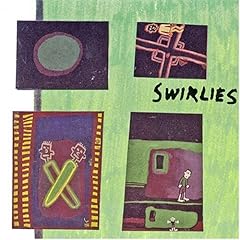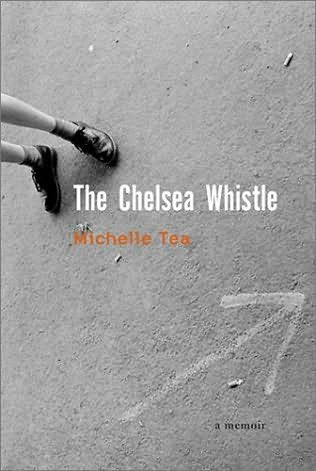What I did: I helped sequence and played chimp-guitar for the Swirlies’ first full-length, Blonder Tongue Audio Baton, and appeared in the above music video (originally filmed for a different song), spliced from shots of band practice under Ben Drucker's dorm and goofing off by the Charles River. Mostly we just toured that year—a mish-mosh of awesome basement gigs booked by Ben (who, being an MIT student, knew the ways of this mysterious new thing called “the Internet”) and horrible concerts with funk/ska bands because our record label’s booking agent also worked with the Mighty Mighty Boss-Tones (we also did a college gig with the Dead Milkmen where the singer swiped my hat). The band did well to get in with the new wave of American twee pop groups like Small Factory and the Magnetic Fields who we gigged with a bit. We were young, awkward and a little obnoxious, giving reporters from Spin and Rolling Stone fake names and fabricating half-truths about the band. For me it was a year of making music and hanging out with friends.
Memorable moment: After playing at a music industry showcase in New York, we were given a hotel room. The CEO or our label shared the bed with one of his female employees while we slept on the floor and Springa from S.S. Decontrol (a long-defunct band on the same label) slept behind a houseplant. Very telling.
Why it ended: Andy rejoined the band when school ended and we played a few shows with two bass players. I was getting flak from Damon for always saying inappropriate stuff into the mic and generally being punker-than-thou. The hype around the band and spending every night on tour in smoky bars was getting me down. Then some kids asked me to be a radio DJ so I left the Swirlies (along with another band as well as my job) to broadcast myself spinning records and working on the smooth radio voice I have today.
Achievements: I went vegan when I was in the Swirlies, a coming-out experience for me, helped in part by Damon’s obsessive regimen of food-combining and Ben’s culinary generosity.
Regrets: We didn’t write any songs while I was in the Swirlies. Seana and I would get together and try for hours but nothing came of it. I also regret my snotty attitude and am truly sorry if I annoyed anyone.
Legacy: The Swirlies reform to tour every couple years and invite former members to jump on stage. I recently ran onstage during the encore of one gig to scream backup vocals into the mic hardcore style, and did double-bass duties at some others in New York and Philly. You can click here to hear this record that was recorded in my old apartment. It’s as exciting now as it was when it came out 2 decades ago.
Why it ended: Andy rejoined the band when school ended and we played a few shows with two bass players. I was getting flak from Damon for always saying inappropriate stuff into the mic and generally being punker-than-thou. The hype around the band and spending every night on tour in smoky bars was getting me down. Then some kids asked me to be a radio DJ so I left the Swirlies (along with another band as well as my job) to broadcast myself spinning records and working on the smooth radio voice I have today.
Achievements: I went vegan when I was in the Swirlies, a coming-out experience for me, helped in part by Damon’s obsessive regimen of food-combining and Ben’s culinary generosity.
Regrets: We didn’t write any songs while I was in the Swirlies. Seana and I would get together and try for hours but nothing came of it. I also regret my snotty attitude and am truly sorry if I annoyed anyone.
Legacy: The Swirlies reform to tour every couple years and invite former members to jump on stage. I recently ran onstage during the encore of one gig to scream backup vocals into the mic hardcore style, and did double-bass duties at some others in New York and Philly. You can click here to hear this record that was recorded in my old apartment. It’s as exciting now as it was when it came out 2 decades ago.










